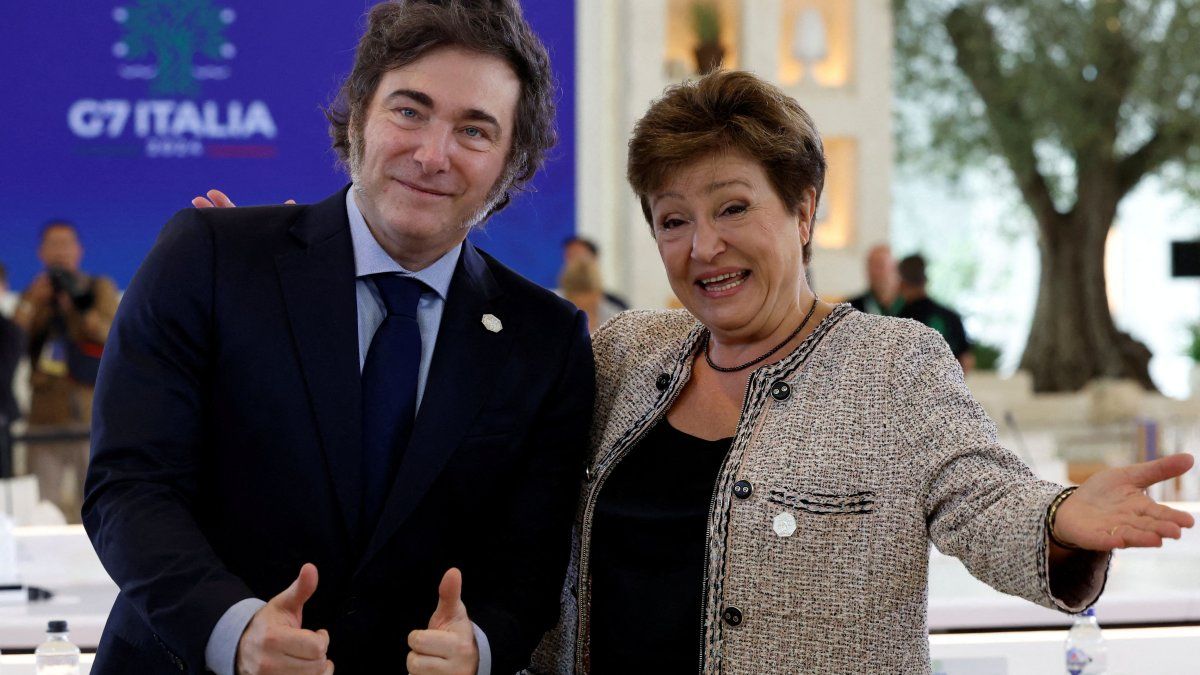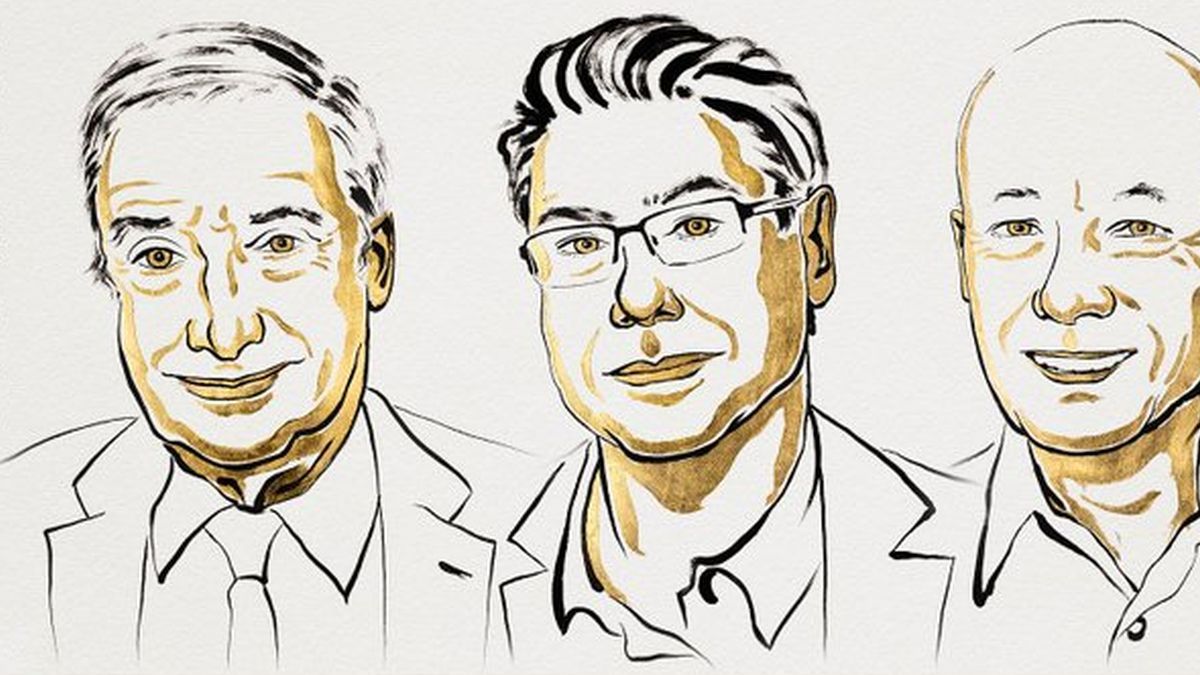Argentina is caught with the International Monetary Fund (IMF). In 2018, the government of Mauricio Macri He went to the agency in the middle of a exchange rate, and in a record time, skipping the required legal controls, he obtained the largest agreement granted by the body to a single country: more than 55 billion dollars were enabled, as a sample of political support before a friendly government in the region. The agreement should serve as support for the government, which was doing the tasks: Adjusting the fiscal accounts (it increased rates, fired workers, lowered taxes to the rich and powerful, among others) and opening the economy.
Despite the successive alerts that indicated that the Stand By agreement was financing the departure of capital, something prohibited by the constitutive agreement of the IMF, The dollars continued entering. But the crisis did not stop. The IMF disbursements stopped when the government was second in the elections Paso de Agosto 2017: They had entered and left 44.5 billion dollars. The crisis and debt were standing.
The government of Alberto Fernández He faced a friendly negotiation of the debt. First with private creditors, for which it had the support of the IMF, and then with the body itself. Although the debt had brands of illegality and illegitimacy, with irregularities that would recognize the Central Bank and then the General Audit of the Nation in the country, and the IMF’s own independent evaluation office, the government’s strategy was to gain time for pay. And with that logic, he agreed a new agreement, of extended facilities, with longer terms, which was used to pay the previous agreement. On the way this implied more interest payment, commissions and even over-cargos.
The demands were not novel (fiscal adjustment, reduce the emission, accumulate reserves), the different was to accept another speed. But under this new program, it seems that the objectives imposed by the Fund could not be achieved.
And that was Milei’s critic flank. Therefore, during his campaign he fell to announce that “the fund would not be a problem in his government” since he would seek to meet the goals. Although with accounting arguments, he achieved his mission. Except with reservations: In Libertarian Argentina, everything that enters does not stop out. Despite the adjustment and recession, of agricultural and energy exports, the Central Bank fails to accumulate sufficient reserves. And this means a constant threat to the possibility of payment of debt.
The Government has made a lot of magic passes: reissue the most important money laundering, applying a new edition dollar-dolts, redeeming debt or putting together a repo with foreign banksbut does not get the 15,000 million that Caputo needs to remove the stock and release the exchange rate.
Without that money, the risk that the exchange rate will fly through the air is very large. Therefore, we still have stocks. At the moment, commercial surplus dollars are being used to intervene in the financial market (free) and contain the gap, but that resource is not enough.
The government needs the IMF to provide greater funds To guarantee exchange stability and continue with the adjustment and reforms program. Now, the negotiation continues with the same minister who let the previous 44.5 billion dollars, promising that this time they will be well saved. That is why the background insists to be different: First release the controls, let the weight devalue and then enable them funds.
The problem is that doing that would imply jumping the anti-inflationary strategy of the government, which is based on the revalued weight. As a very important part of the vote to the ruling party, it was based on its promise to lower inflation: it does not matter if your scheme is unfair and unsustainable at the macro level, while that is held, it is likely that trust does not finish falling. If inflation jump, the story would be another. The debate on the appreciation of the weight is at the table for at least two months ago, and generated discussions with a most diverse arch, from Cavallo to Kicillof. Correct it now implies the risk of seeming weak, of giving in. Even so, it was to align dissemination of the current account that also increased by devaluations of the currencies of peripheral countries, even in the region. In electoral year, a devaluation does not seem to be a good option for the government.
The global situation is putting all international organizations in check and the IMF is no exception. The United States is withdrawal of international organizations, moving to agendas that do not prioritize multilateral strategies, and this is evidently tensioning the rope with other directory partners. Bureaucratic arguments are strong, but so is the ideological tune of the presidents of the US and Argentina. Will they pretend to appeal to the 11 billion approved in 2018 and were not used? What new type of agreement would you sign?
In the midst of these tensions, which have been delaying negotiations for months, the Cryptocurrency Fraud School $ Libra. The president and his direct environment are directly involved, and the events are renewed daily, with world repercussions. The “foundations” of the model, they say, remain unchanged: Milei continues with his unjust fiscal adjustment, at odds with the right. But, now he faces a reputation problem: either he was participating in a scam, or is not the expert who boasted of being, or is lousically advised at very close levels, or all together. How would an investor trust such a driving? How would they from the IMF to validate such an operation?
The political and ideological closeness between Trump and Milei suggests that, as happened in 2018, although the rules indicate something else, a new program may exist (although we still do not be certain of it). Nor are there many accurate indications that, even if it is approved, the government can reach the legislative elections with the dollar under control. The only thing that is safe in this story is that it would leave us, again, the Argentines, crushed by a greater debt that did not contribute anything to improve our lives.
Members of the Fiscal Work Space for Equity. Francisco Cantamutto is a Doctor of Research in Social Sciences, mention in Sociology Master in Social Sciences and a degree in Economics (UNS-CONICET) and María Julia Eliosoff is an economist and project director at FES Argentina (Friedrich Ebert Foundation).
Source: Ambito
David William is a talented author who has made a name for himself in the world of writing. He is a professional author who writes on a wide range of topics, from general interest to opinion news. David is currently working as a writer at 24 hours worlds where he brings his unique perspective and in-depth research to his articles, making them both informative and engaging.




